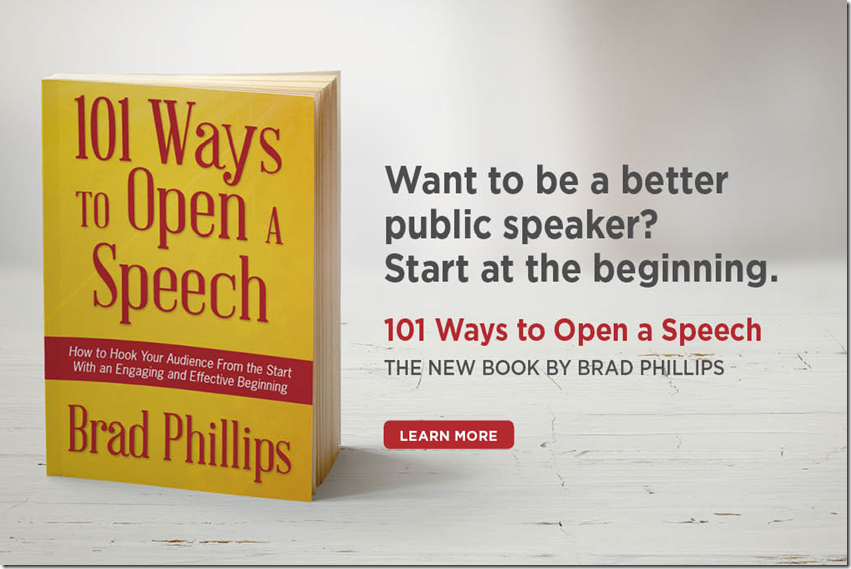The Question That Completely Reset One Public Speaker
I recently worked with a speaker who was planning to deliver an upcoming speech from a script.
He delivered several practice rounds, each followed by video playback and specific feedback. Although he was improving around the edges, the talk was coming across as too flat to accomplish his goals.
My feedback wasn’t having the desired effect. That’s not his fault — I firmly believe that it’s incumbent upon me, as a professional trainer, to find a method of feedback that resonates for each trainee.
Fortunately, I had a sudden moment of inspiration, in the form of a question, which led to a breakthrough moment.
“I’d like you to think about the traits you admire in the presenters you respect the most. What comes to mind?”
The trainee responded by listing a few things he valued, such as the ability to read a script without sounding stiff, mastery of the material, being a good storyteller, and having clean slides. I assured him that those were all important traits, but then I took the opportunity to make my point.
“What’s interesting to me isn’t what you did say, but what you didn’t. For example, many audiences would answer that question differently. They might say that they like speakers who appear comfortable in their own skin, or who are willing to shed the illusion of perfection in order to prioritize a meaningful audience connection, or who come across as being fully in service to the needs of the audience rather than their own. You’re putting a premium in some places that intersect with where the audience puts a premium—but you’re also setting aside some rather important traits that, perhaps, you should move onto your list.”
My goal was to help him see that which he couldn’t — but that many audiences do.
We followed that discussion with another practice round, but this time, I asked him to set his preferred traits to the side for a moment and focus on the other ones we discussed. In order to help accomplish that, I asked him to put his script away and deliver his talk extemporaneously.
He did so well, I actually found myself swelling with pride for him. He became a completely different person when he wasn’t shackled by his own desire to deliver a talk that looked perfect on the page but came across with far too much distance to be successful.
The takeaway point: It’s only natural that we bring our own preferences to each talk, but it’s worth challenging our own perceptions to make sure they’re truly aligned with those of our audiences. Asking yourself the same two questions — “What do you value?” and “What’s missing from that list from the audience’s perspective?” — may help you identify when you are out of alignment with your audience.




